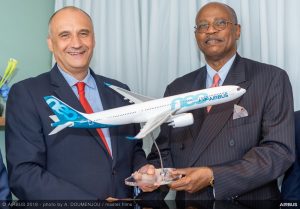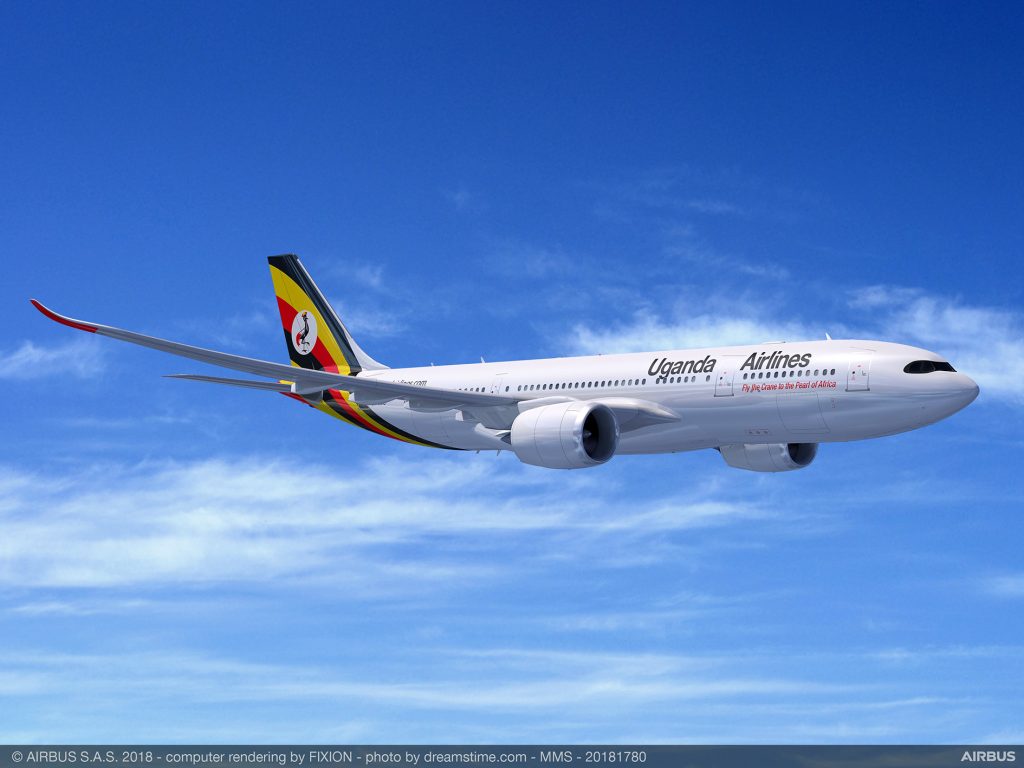
The Uganda government on July 18 entered an agreement with Canadian plane manufacturer Bombardier to get four CRJ900 aircraft in a deal worth $190m (Shs711bn).
The deal is part of efforts by the government to revive the national airline which suffered several technical and management challenges before it collapsed in 2001.
According to the government spokesperson Ofwono Opondo, the airline will commence in-bound flights around the East African region by March 2019 and expand to world routes in October 2020 when the two Airbus A330-800neo aircraft are delivered.
In order to become profitable, the Works Minister, Monica Ntege Azubah said revealed that government officials flying out of the country will – as a rule, have to fly Uganda Airlines.
Although the national carrier is yet to receive approval from the Civil Aviation Authority (CAA), factors point to the fact that the Ugandan flag will fly overseas once again.
But with the Ugandan routes already being plied by bigger and certainly better airliners, does the Uganda Airlines stand a chance of survival? Jim Mugunga, the Finance ministry spokesperson told Matooke Republic that he is unconvinced that the sharks that swallowed the precursor national airline will spare the new airline.
“The reality is that airline management has to be professional, experienced and competent. The Government appointments and interference, failed ideology, and corruption have no place here,” he said.
Mugunga also cautioned the government on the profitability of the national carrier especially in the face of competition from international giants such as Emirates. Giant, multinational and private airline companies, he said, have squeezed the traditional, “national airlines” out of business.
Bad business?
In 2015, Kenya Airways (KQ) reported a net loss of $258m (approximately Shs870bn), the country’s worst ever corporate loss. South African Airways (SAA) declared that it was technically insolvent.
To date, it survives on state-guaranteed loans and remains incapable of producing financial statements. Ethiopian Airlines is the most successful national airlines in Africa and this week, it purchased its 100th aircraft.
Even Tanzania and Rwanda dwarf Uganda six-strong fleet – that is everything goes as planned. Is Uganda Airlines a classic case of a poor man playing in a rich man’s league? British Airlines and Etihad Airways all cancelled flights to Uganda in 2015
and 2017 respectively despite both airlines being dominant players. What will Uganda Airlines do differently?
While the proponents of the airline argue that we need a national airline to create jobs, transport people, fly unpopular routes, develop tourism and trade and carry the national flag, veteran business journalist, Paul Busharizi thinks that Uganda has better ways to employ her people and make more money than an airline.
“Starting up Uganda Airlines at any cost; in the old form and business model, in order to fly the national flag, or for pride and sovereignty is simply bizarre.
KQ and SAA serve as a lesson to Uganda that no airline, national or otherwise, established under old-school sentimental “national” carrier policies, can survive in today’s hugely competitive environment,” he said.
Busharizi argues that with the country still suffering from gross poverty, hunger, and economic hardships, investing in reviving an airline in a case of misallocation funds since almost 75% of the population cannot afford a plane ticket.
Building capacity
In terms of capacity, Dr Samson Rwabwire, a PhD holder in Materials Engineering at Makerere University and a Masters in Mechanical and Aerospace Engineering told Matooke Republic that Uganda still lacks the technical capacity to manage an airline.
Rwabwire noted that a national airline needs a self-reinforcing skill base – something that the country’s aviation school is not producing.
“As a person who has worked as an aircraft maintenance engineer, Uganda has maybe not more than five qualified and experienced aircraft engineers with the capacity to support maintenance of Boeing and Airbus fleet.
“Even the fleet used by defunct Air Uganda used to be maintained by expatriates from France and Italy. This is where the oil dollars can go to revamp the East African School of Aviation and probably turn it into an aviation institute offering aviation/ aeronautical degrees in the region,” he added.
